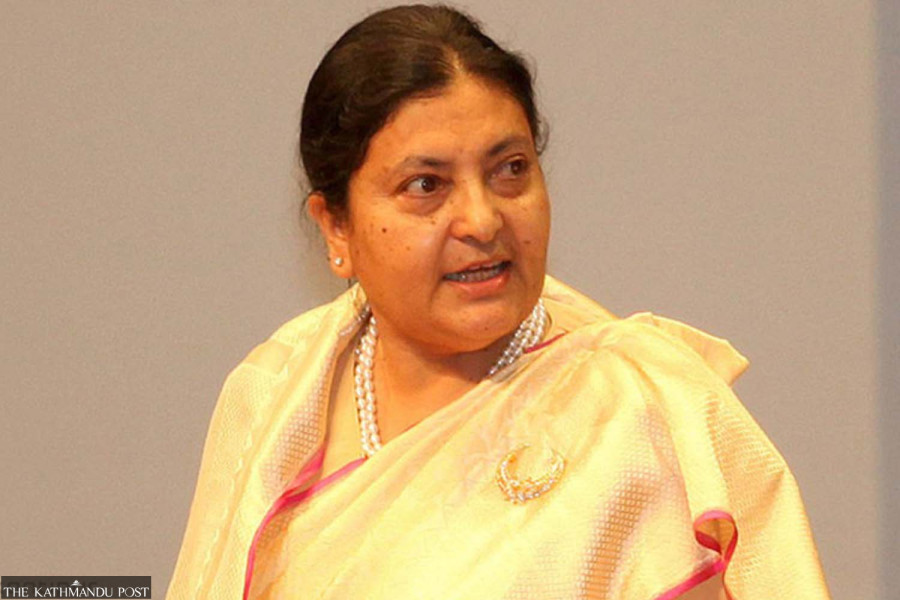Editorial
Un-presidential ambitions
Nowhere does the constitution envision for the president the kind of broad discretionary powers she seems to want.
President Bidya Devi Bhandari was well within her rights to send back the bill to amend the Citizenship Act to Parliament for reconsideration. The constitution allows her to do so. The reason behind giving the President such residual powers over important bills is to correct, when necessary, the legislature's errors of judgment. The President has the luxury of calmly thinking through important topics away from the hustle-and-bustle of parliamentary politics. But what the constitution does not allow her to do is to try to influence the other organs of the state in any shape or form.
Yet that is precisely what she seems to be doing with the citizenship amendment bill. She is reportedly consulting legal experts to work out ways to scuttle it. Those who have offered Bhandari legal counsel say she is in a rather combative mood and is intent on not endorsing the bill as it is. But, constitutionally, that is what she must do now that Parliament has sent her the bill for the second time. Nowhere does the constitution envision for the President the kind of broad discretionary powers she seems to want. She is reportedly even consulting senior army personnel on the issue.
Bhandari is clearly acting in the interest of CPN-UML, the party she formerly belonged to, and to which she still apparently owes allegiance. This is not the first time she has championed UML’s cause from the President’s Office. Bhandari, for instance, had no constitutional ground to authenticate former Prime Minister KP Sharma Oli’s dissolution of the lower house—twice. Yet she felt no compunction in doing so. Now that the main opposition is vehemently opposed to the citizenship amendment bill, she is again helping her former party stall it.
The President’s Office argues that the bill, in its current form, is not in national interest. But that is besides the point. By once returning the bill to the federal Parliament, she has already made her point clear. Now she must realise that she can do no more without seriously jeopardising the sanctity of her institution and endangering the hallowed democratic principle of check and balance. She is apparently slighted by Parliament’s ignoring of her concerns over the bill. Again, that is fine so long as she keeps her displeasure to herself. But to openly express her dissatisfaction by overstepping her legal bounds is uncalled for.
The 2006 political uprising did away with the hereditary monarchy and installed a ceremonial head of the state in its place because the former seemed to be acting like law unto himself, amassing more and more power, openly trampling on the national charter, and trying to play an overtly political role. President Bhandari’s activities are eerily reminiscent of those of the entitled erstwhile monarchs.
As the head of the state assumes a more political role, people’s frustrations with the new post-2006 setup will grow. Many rightly question why the ceremonial head of the state leads a lavish life and openly breaches constitutional bounds. Moreover, she is setting a troubling precedent for future occupants of the office. The risk of it being used to serve political agendas will increase. The President’s duty is to ensure compliance and protection of the constitution, not to violate it.




 8.43°C Kathmandu
8.43°C Kathmandu














